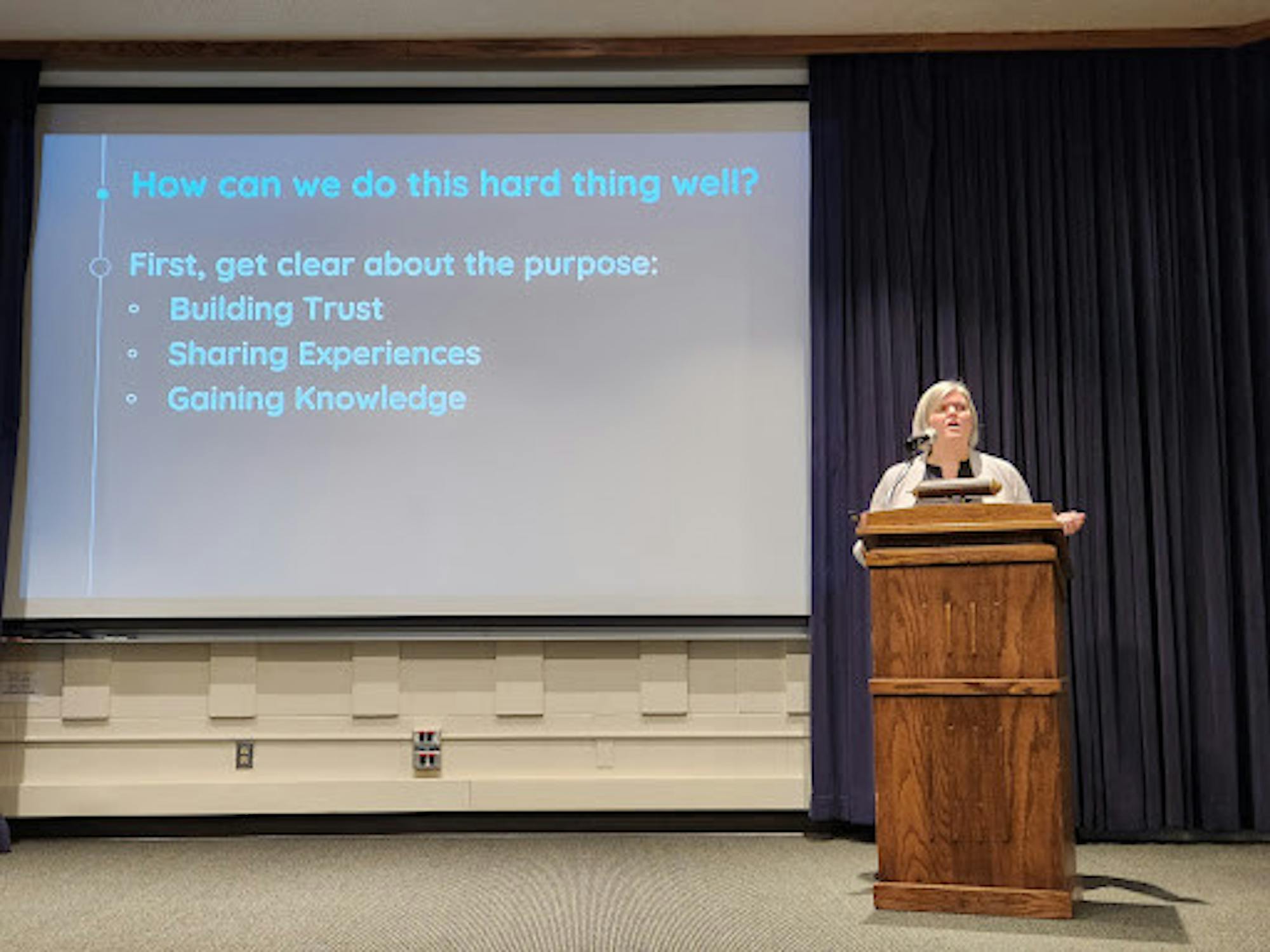On Wednesday, the Saint Mary’s College Post-Dobbs Program Series hosted their first event called “Dialogue, Not Debate: Why it Matters to Talk About Abortion on Campus.” The talk featured associate professor and chair of the Philosophy department, Megan Zwart, who discussed “having dialogue in ways that are productive, not polarizing.”
The series is put on by the Academic Program Committee of the Post-Dobbs working group, a committee of faculty members from a variety of disciplines. Daniel Horan, chair of the Academic Program Committee, said the purpose of this series is “to offer students, staff and faculty the opportunity to learn about a range of issues related to the US Supreme Court decision last summer to overturn the Roe v. Wade decision.”
Julianne Wallace, vice president for mission at Saint Mary’s, said that “Dr. Zwart has been active on our campus, promoting dialogue specifically around difficult topics and complex issues.”
Zwart is the director of the Dialogue Project, a program dedicated to encouraging communication across difficult subjects. Through this program, Zwart gained experience in promoting productive dialogue in tough topics.
Zwart says she also has experience facilitating topics about abortion due to her teaching. She has taught a medical ethics class for 15 years that has a unit dedicated to abortion. Due to this experience, Horan said Zwart is “the perfect person to help give the campus community some resources for how to approach listening, learning about and discussing topics like abortion on campus.”
Zwart’s conversation centered around three points she wanted the audience to consider: why is this a hard issue to talk about, why is it that it matters that we talk about it and what are some strategies we can use to have productive conversations?
First, she brought up that abortion is hard to talk about due to religious, political, moral and other differences. Zwart said that despite these differences, we don’t have to abandon our beliefs to have productive conversations and build a community.
Next, she asked the audience to ponder why it matters that we have these conversations.
Zwart proposed to benefit ourselves as individuals, “we should always be testing our view and checking clarity and consistency.” In short, she is asking people to learn from others in order to “create a community where people feel welcome.”
Zwart lastly touched on important things to keep in mind when trying to have productive conversations, such as trust, sharing experiences and intending on gaining knowledge. She used these strategies to emphasize talking versus debating.
“In debate there is a winner,” Zwart said.
She also encouraged what she referred to as curious questions. These questions are “routed in wanting to understand someone’s difference from you.”
She emphasized that to ask these questions that are rooted in curiosity is to genuinely learn someone’s viewpoint, not defensive of your own.
“If we shout down at others, we miss opportunities,” Zwart said.
The event wrapped up with a question and answer segment that centered around themes of places to have conversations, how to desolate bad conversations and the complexities of abortion rights.
The Academic Program Committee’s next event is March 2, Horan says features “a team of sociologists who will present on their research on the local history of abortion in the greater South Bend area.”
Following that, Horan advertises the final event of the semester, a panel featuring President Katie Conboy and other faculty members “addressing how the Post-Dobbs context affects the Saint Mary's College community from a variety of perspectives.”
Additionally, several events on the same subject are being put on by the Student Program Committee. This committee is similar to the Academic Program Committee, except it is made up of students from various disciplines. Wallace said that this committee worked with Zwart in the fall to learn ways to have these difficult conversations.
Saint Mary’s kicks off series centered around reproductive rights
Saint Mary’s professor Megan Zwart spoke on helpful ways to have conversations on difficult topics, such as reproductive rights.









